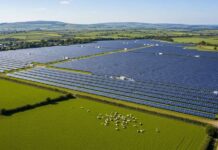The member states of the European Union will get together to approve emergency taxes on energy companies’ windfall profits and start talking about their next steps to solve Europe’s energy crisis, which could include putting a cap on gas prices. The energy ministers of the 27 EU member states are currently thinking about what to do about the rise in energy prices that is causing record-high inflation and making a recession more likely. Last week, Brussels suggested some ways to stop the rise in energy prices.
They include a tax on the excess profits produced by fossil fuel companies in 2022 or 2023, a second tax on the extra money low-cost power providers make from rising energy prices, and a need to reduce electricity use by 5% during peak hours. Ministers will likely adopt the plan, according to diplomats from a number of different nations.
They will also discuss the EU’s next step in containing the price spike, which several nations have suggested should be a broad gas price ceiling but which others, most notably Germany, continue to resist.
A ambassador from one EU country claims that the price cap is not near agreement.
In an effort to contain inflation, fifteen countries among them France, Italy, and Poland, asked Brussels this week to propose a price cap on all wholesale gas transactions. Europe should impose a cap on gas prices that is high and flexible enough to allow Europe to recruit the necessary resources, according to a memorandum describing their strategy that was received by Reuters from Belgium, Greece, Poland, and Italy.
Germany and the Netherlands are among the opponents, arguing that if countries cannot compete with purchasers in price-competitive international markets for gas shipments in winter, they will struggle to attract supply.
As Europe enters a winter with little energy left over and in response to sanctions imposed against Moscow for its invasion of Ukraine, Russia has reduced gas exports to Europe. A diplomat from one EU country warned the idea had major vulnerabilities and threats to the security of supply.
Additionally expressing misgivings, the European Commission recommended the EU should move forward with more constrained versions of a price restriction.
According to a report released on September 29th by the Commission, a wholesale gas price ceiling would need substantial financial resources and could only be effective if a new organisation was established to distribute and convey limited fuel supplies between states. Instead, it recommended that EU nations think about regulating the cost of Russian gas or instituting an EU price ceiling exclusively for gas used for electricity production.
Earlier this month, the Commission proposed a restriction on Russian gas prices, but it was abandoned due to opposition from central and eastern European nations who feared Moscow would respond by cutting off the gas it still supplies to them.
Countries in favour of price restrictions would increase their efforts to find a solution that more EU countries could support, according to Tinne Van der Straeten, minister of energy for Belgium. She stated that they would take more steps with Germany, with Austria, and with all those nations that today still have misgivings.
Only up to 2 billion euros, she continued, would be required to pay for emergency gas purchases should costs exceed the EU quota because the majority of European imports are covered by long-term contracts and/or flow via pipelines, leaving few easy options for buyers. That, she argued, is insignificant to the money already being spent by individual EU countries to assist their consumers in coping with skyrocketing prices.
Berlin announced a 200 billion euro ($194 billion) protective shield on September 29th to fence German businesses and individuals from the effects of skyrocketing energy prices. This defensive shield includes a gas price brake and a reduction in sales tax for the fuel.


































